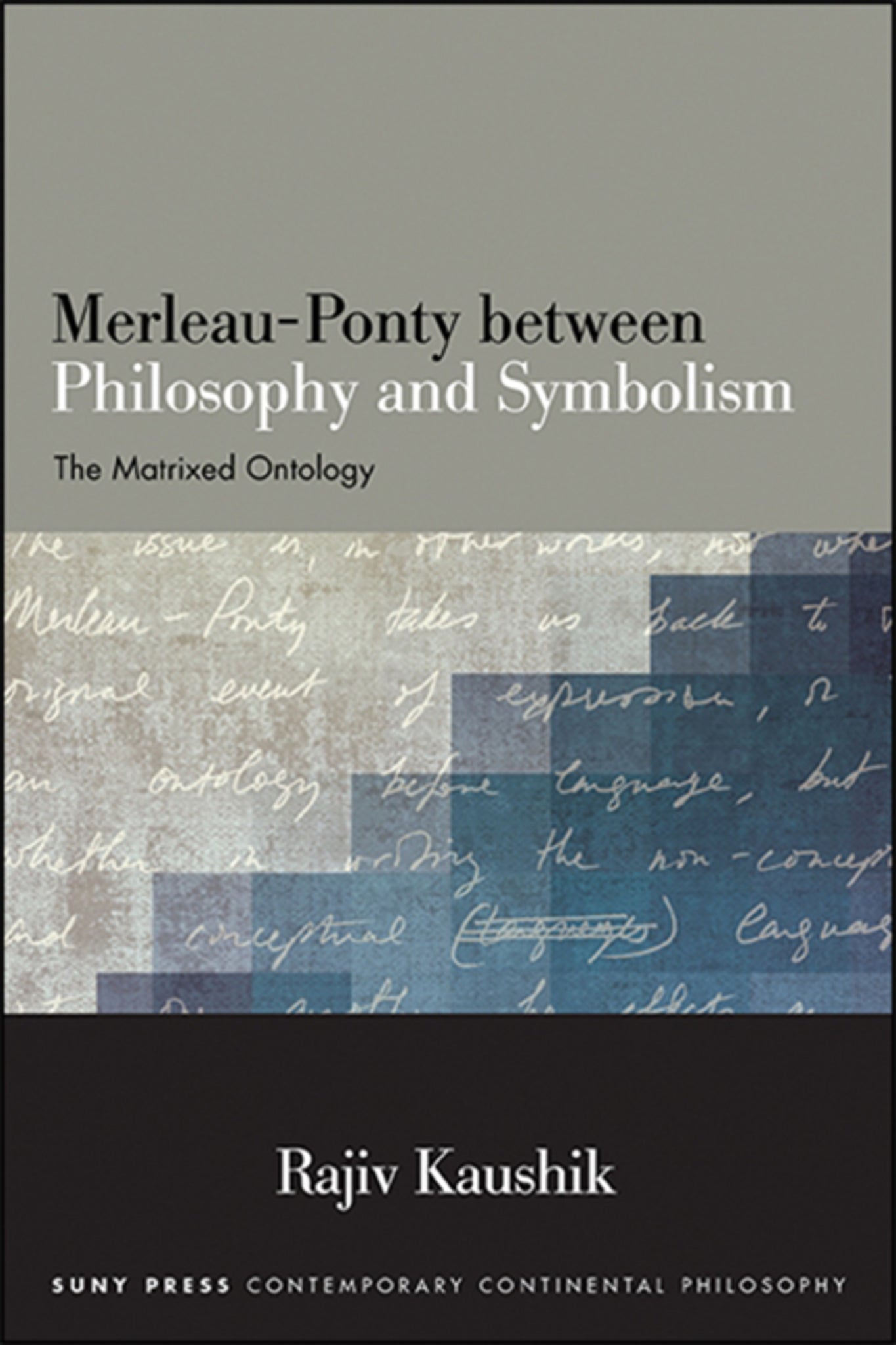We're sorry. An error has occurred
Please cancel or retry.
Merleau-Ponty between Philosophy and Symbolism

Some error occured while loading the Quick View. Please close the Quick View and try reloading the page.
Couldn't load pickup availability
- Format:
-
01 November 2019

Argues that symbolism is an important and unique element of Merleau-Ponty's phenomenology.
Merleau-Ponty says in his Institution and Passivity lectures that he wants to "consider criticism itself as a symbolic form" instead of doing "a philosophy of symbolic form." This invites the possibility of an unconventional thought: If critical philosophy is a symbolic form, it cannot disclose its own limits and is, in fact, uncritical. Furthermore, the symbolic form can never itself be thought according to the terms of the criticism it produces but is always only constellated and matrixed within them-a symbolic form within both reflection and what it reflects on, within consciousness and the world. Thus, as Rajiv Kaushik argues, the symbolic form is another name for what Merleau-Ponty calls ontological divergence. Only now divergence introduces the question of a limit to both the subject and philosophy itself. This is nothing less than a psychoanalysis of philosophy.
Kaushik's analyses of the matrices between space-imagination, light-dark, awake-asleep, and repression-expression reveal this symbolism in its form of divergence, its lack of origin and destination. Kaushik also argues that the phenomenology of symbolism must detour from the purely descriptive method. Drawing from Merleau-Ponty's recently published course materials, and attentive to his reliance on literature and literary language, Merleau-Ponty between Philosophy and Symbolism continues the living force of Merleau-Ponty's thought and develops his radical insight of the primacy of the symbolic form, even in an ontology that claims to be about the sensible and its elements.


"…it is emphatically clear that Rajiv Kaushik has given us many 'intelligible mouthfuls' in the phrase of Claudel, thereby creating one of the most original books in recent studies of Merleau-Ponty's ontology. It casts light on relatively unknown or unaccented themes that disclose a 'new' Merleau-Ponty, philosopher of the event, symbol, and elements … we can all be eager to read and hear more from Rajiv Kaushik." — Research in Phenomenology
"One of the best, most original books in Merleau-Ponty studies in recent years." — Galen A. Johnson, author of The Retrieval of the Beautiful: Thinking Through Merleau-Ponty's Aesthetics
List of Abbreviations
Acknowledgments
Introduction
Matrix Events and Institution
Sedimentation and Symbolism in Institution
Symbolic Forms and Elemental Being
Outline of Chapters
1. Matrix Events: Methods and Antecedents
The Homeric Diphthong
The Platonic Dividing-Collecting
The Merleau-Pontian ecart
Interrogative Method and ecart
Ecart and Division in Heraclitus
λόγος and ἁπτόμενον in Heraclitus
Some Remaining Questions
2. Space—Imagination
Abstract Geometrical Essences, Morphological Ideals, and Phantasy in Husserl
The Role of Imagination in the Substruction of Essences
Sculptural Shapes and the Space of Imagination
Beyond Sight and Image
Some Remaining Questions
3. Light—Dark/Awake—Asleep
The Light—Dark Opposition in Jean-Luc Nancy
Light—Dark and Elementality
Waking—Sleeping
Dark Sleep
Some Remaining Questions
4. Philosophy—Symbolism
Dreams and Passivity
The Positive Symbol
The Positive Symbol and Psyche
The Positive Symbol, Psyche, and λέγειν
The Positive Symbol in Philosophy: Analysis and the Analyzed
Some Remaining Questions
5. Philosophical Language—Literary Language
Ontology, Not Metaphorical Ontology
Finding a Hermeneutical Reverie with Proust
Some Remaining Questions
Conclusion
Sedimentation, Elementality
The Different Politics of Metaphor and Symbolism
Politics, History, and Elements
Notes
Bibliography
Index



